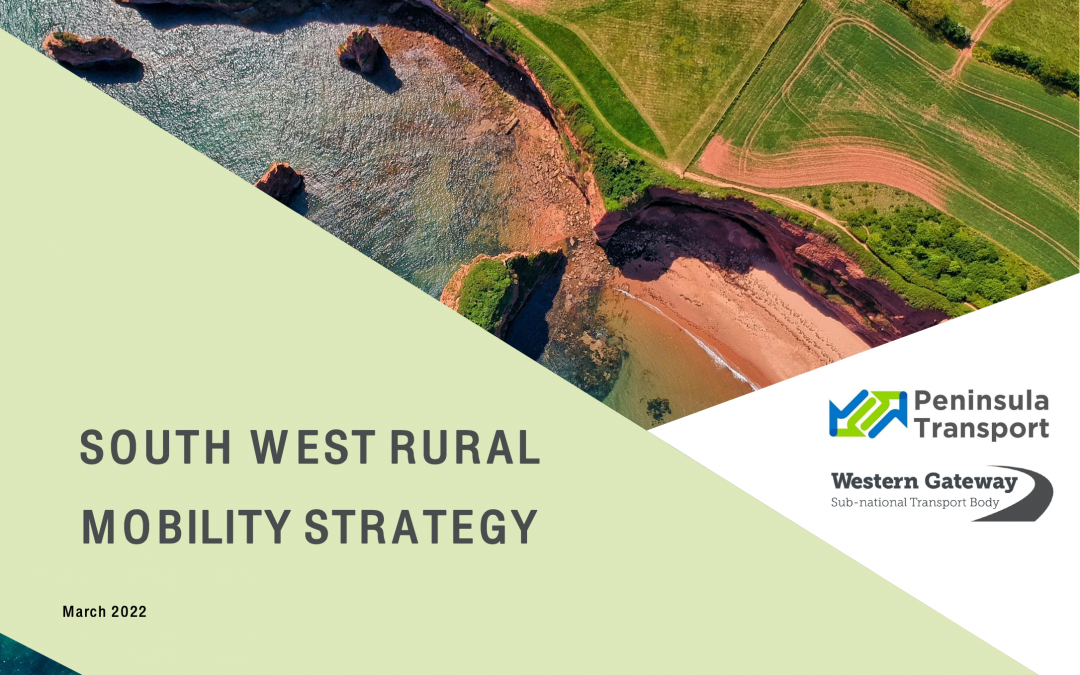The first sub-national rural mobility strategy in England has been launched by the Western Gateway and Peninsula Transport Sub-national Transport Bodies (STBs). The joint strategy covers South West England and sets out how the two STBs will deliver an ambitious vision to improve rural mobility for the communities that need it most.
The South West has the most rural population of England’s traditional regions. Around 17% of the English population live in rural areas and in the South West that figure is 33%. However, despite a sizeable population, many of its countryside and coastal communities are being significantly impacted by a reduction in public transport services, leading to an inevitable high dependency on private cars.
While some areas in the South West are very affluent, others suffer from significant economic challenges compounded by rising fuel costs. The dominance of private cars is also making it difficult to meet net-zero carbon targets, particularly when people have to drive further to reach employment, education, healthcare or even just to do their weekly shop.
Decarbonised, publicly available and affordable transport should be central to improving rural mobility, increasing choice and providing alternatives to private car journeys. Digital connectivity and mobile services are also key, enabling more to be done without the need to travel. The South West Rural Mobility Strategy has been developed to address these challenges and build new approaches to support rural and coastal communities in becoming more connected and more prosperous. It identifies the locations where rural mobility issues are most pressing and sets out a framework for delivering solutions.
Piloting new approaches will be a first major step in delivering more for rural areas. A wide range of potential interventions have been packaged into bundles that target different types of rural place (rural towns, villages, hamlets and isolated dwellings). Six types of pilots have then been identified to trial the bundled interventions. The next steps will be to develop the pilots into live trials. By running a varied set of pilots there are more opportunities to learn and to develop sustainable models for long-term delivery of mobility in rural areas.
Engineering professional services consulting firm, WSP, was commissioned by the two STBs to develop a strategy that would reflect their vision for enhanced rural mobility, supporting economic growth and the levelling up agenda while meeting decarbonisation goals. Evidence gathering involved analysing 1,400 rural locations across the South West and talking to rural businesses and residents to understand their needs. The development of the strategy included identifying best practice in the region, UK and globally, and saw more than 100 potential proposals identified and evaluated to meet the needs in different types of rural places including rural towns, villages and hamlets as well as more isolated dwellings.
Cllr Ray Bryan Rural Mobility lead, Western Gateway Sub-national Transport Body said:
“We are pleased to have joined forces with Peninsula Transport and worked with WSP to produce this important study. It clearly demonstrates how initiatives to enable stronger digital connectivity and facilitate better strategic connections can help our communities with the most pressing transport requirements. We look forward to trialling the pilot projects and monitoring their progress.”
Peninsula Transport Chairman, Councillor Andrea Davis, said:
“Improved rural mobility is vital in helping to overcome poor accessibility and connectivity, which is holding back not only rural areas but the region as a whole. It makes important connections between people, places, services and businesses, as well as playing a key part in achieving our decarbonisation goals.
“Working collaboratively with Western Gateway, we have been able to take a common approach and share data, to produce a meaningful way forward. One size does not fit all and a tailored approach is needed to foster better rural connectivity. By understanding people’s experiences, specific needs and aspirations, we can ensure our rural communities are not left behind. Partnership working will be key to delivering solutions and we look forward to working with partners across our transport network as we roll out the pilot projects.”
For further information and to access the rural mobility strategy click here.

